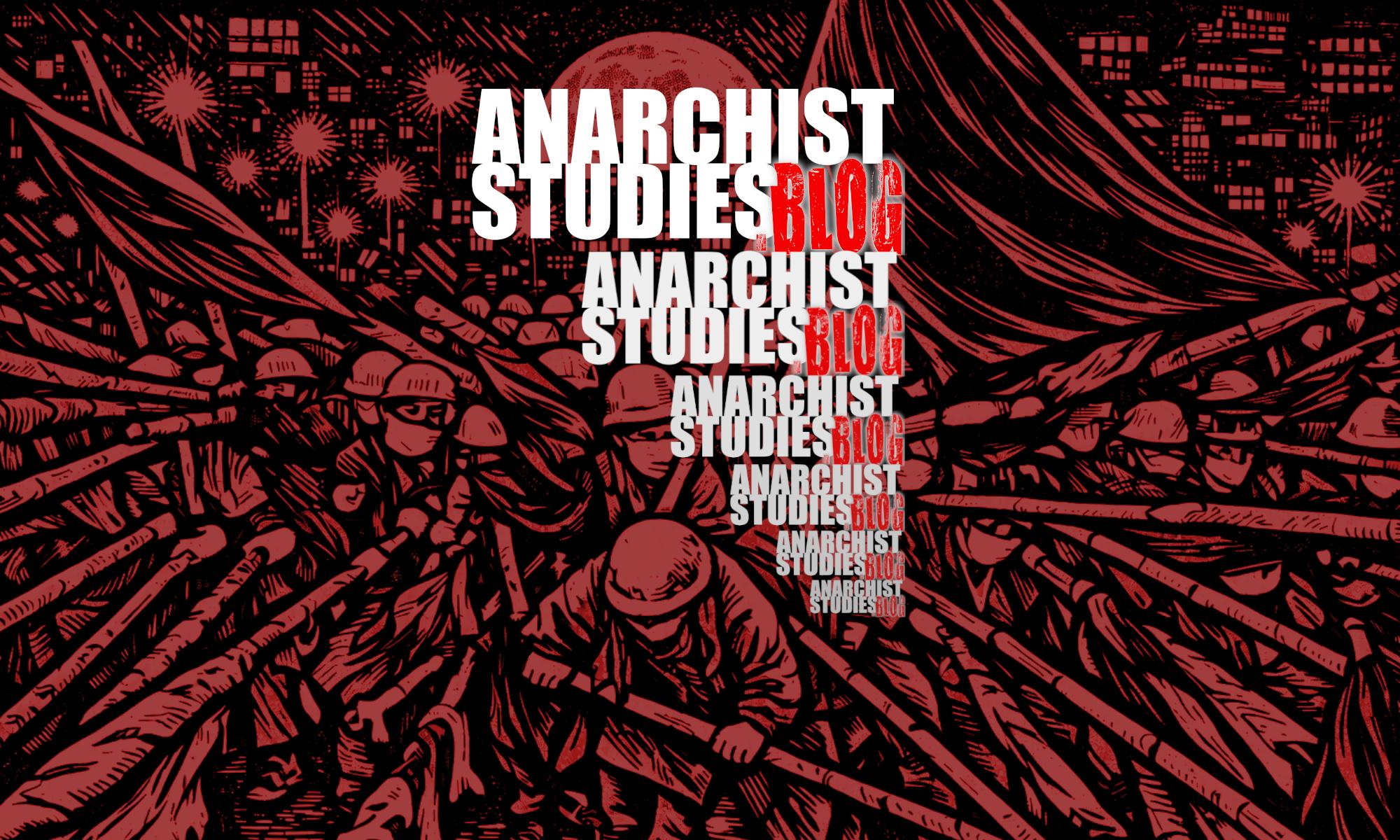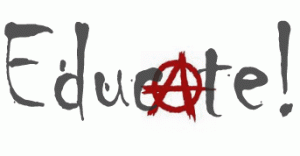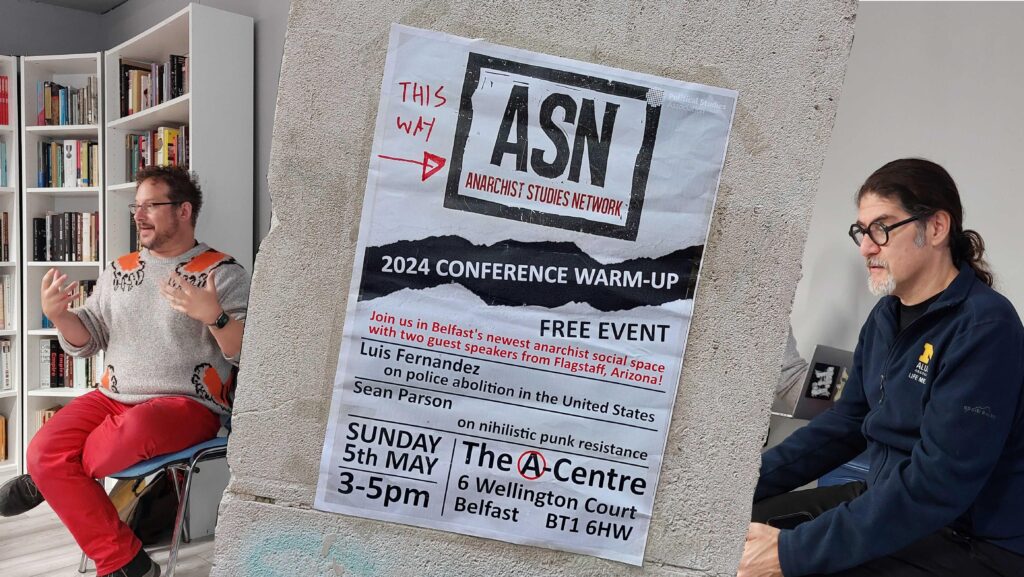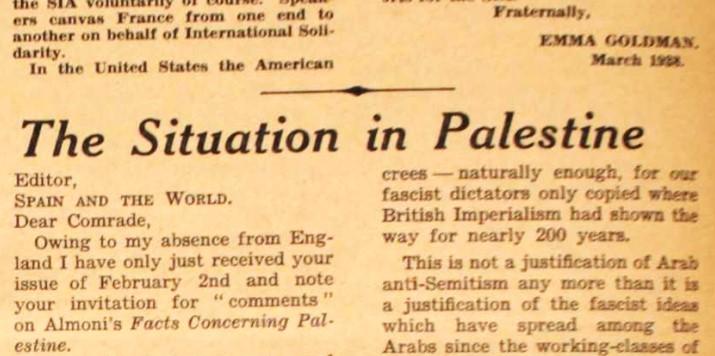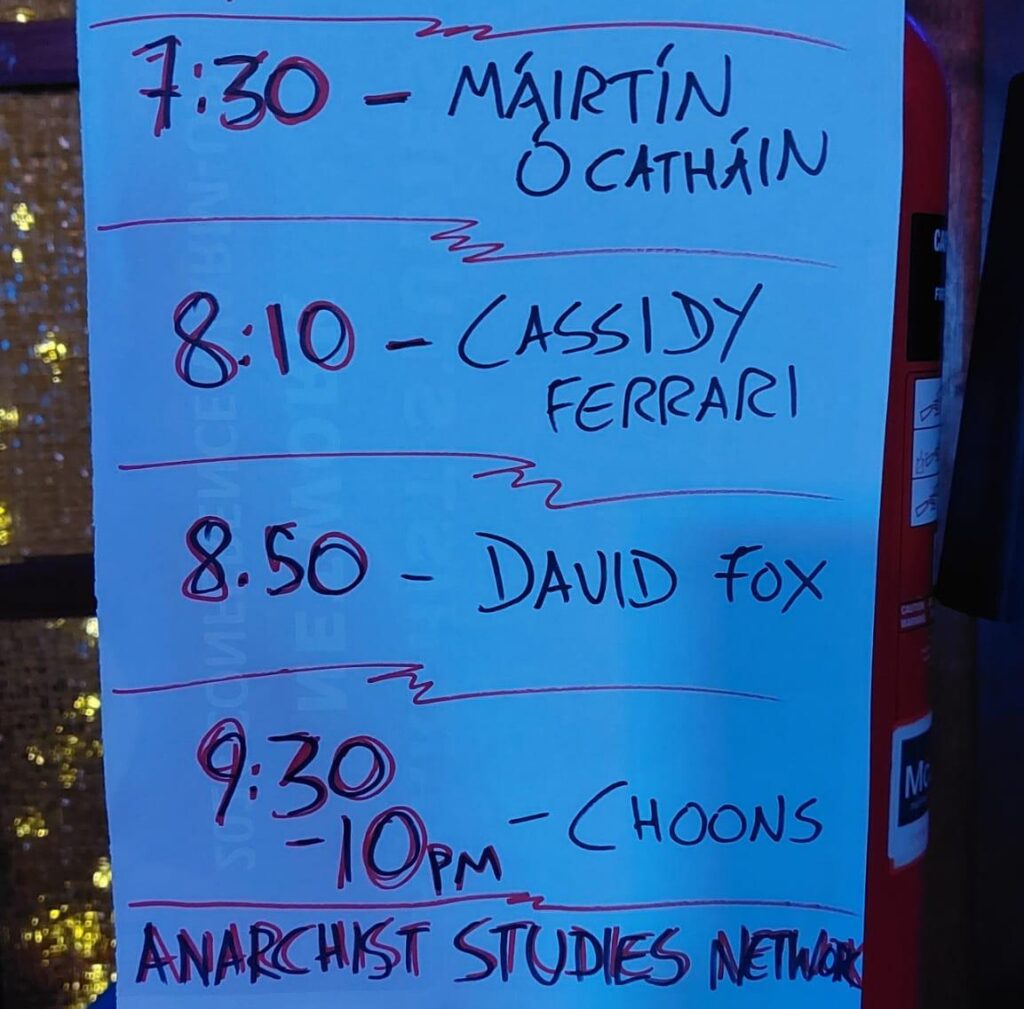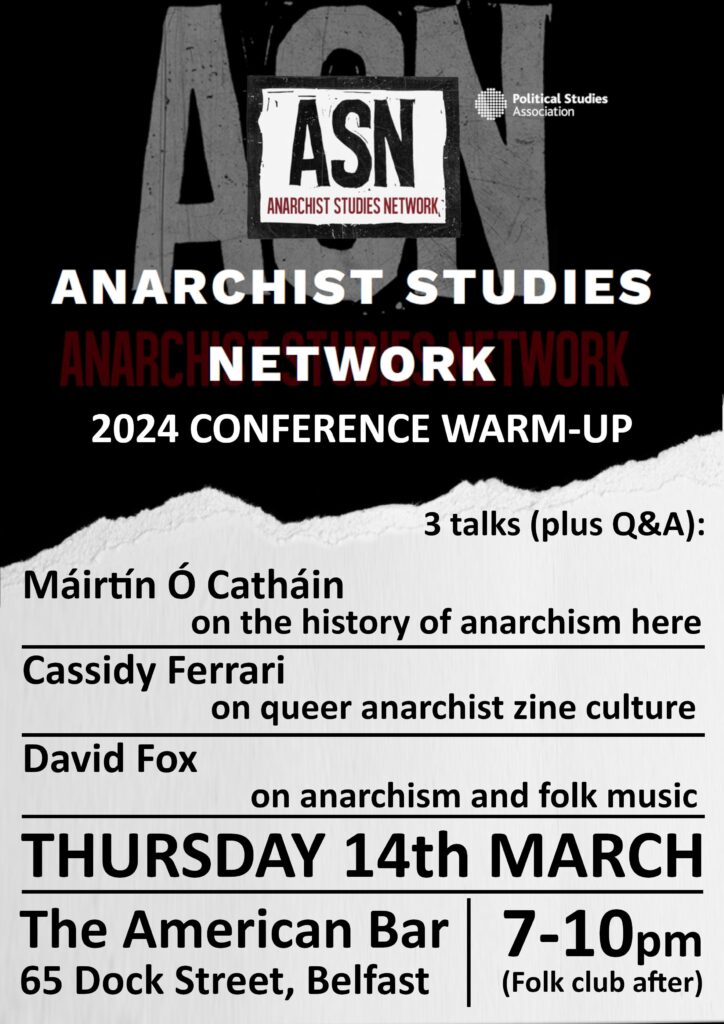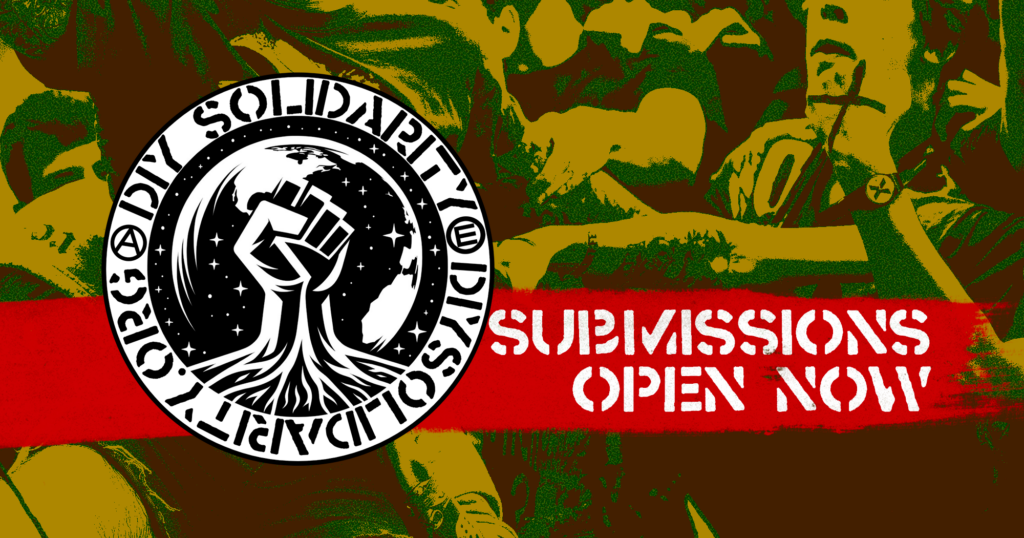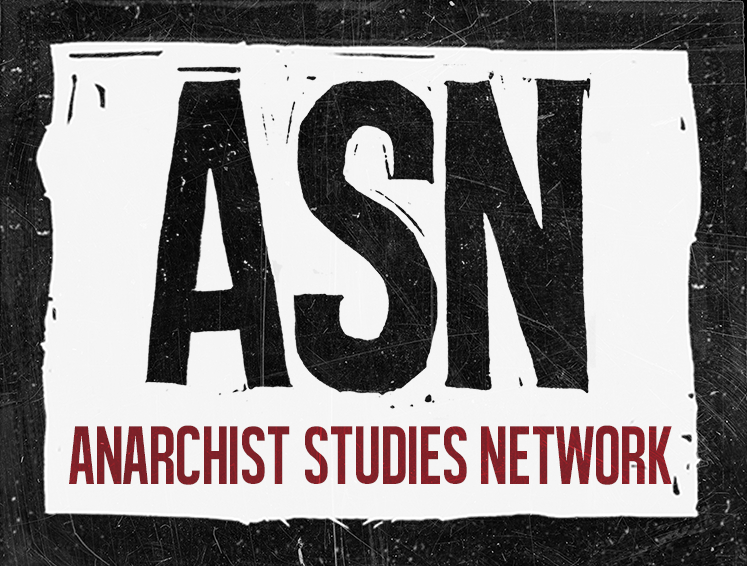Is conflict a problem to solve, an awkward fact of life, or even a virtue to uphold? Are particular conflicts ‘good’ or ‘bad’? Is anarchism in conflict with itself? Does peace simply equate to an absence of conflict, or is it an ‘equilibrium’ of conflicting social forces? War, huh? What is it good for? ‘Absolutely nothin’!’ (Edwin Starr, 1970).
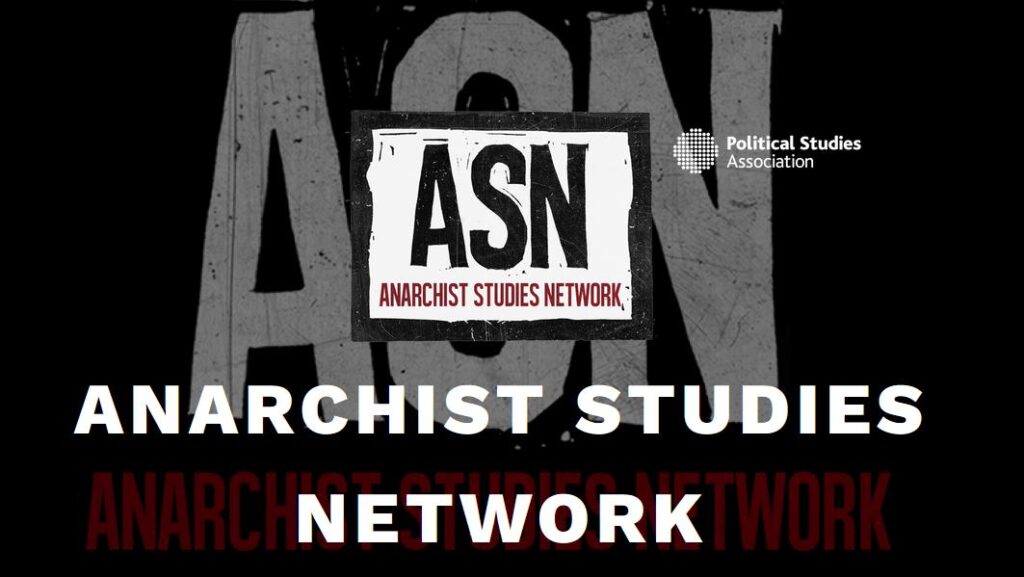
Conflict exists at all levels of society, in myriad forms, and with wildly diverging intensities. Anarchism can be framed as the site of conflict (anarchism in conflict), as the cause of conflict (anarchism with conflict), as a philosophy and practice of conflict (anarchism as conflict), or as the response to conflict (anarchism beyond conflict).
When anarchism is a response to conflict, conflict is often understood as a problem to be overcome – think for example of systemic oppressions and coercive hierarchies, interpersonal or civil dispute resolved through transformative justice, or anti-war and anti-militarist organising campaigns.
As a cause, conflict has also been embraced as a core tenet and activating force of anarchist organising and culture – think of the in-your-face antagonism of class war, the ‘willingness to offend’ that animates queer punk cultural interventions (Wiedlack, 2015 [Queer-Feminist Punk: an anti-social history]), or the celebrated militias of Makhno, Durruti and their ilk.
Going further, anarchism may be understood as a philosophy and practice that perceives the essence of social interaction as an unending plurality of conflicts, drawing on the classical anarchist invocation of antinomies:
Out of these antinomies, their conflicts and precarious equilibrium, comes growth and development; any fusional resolution or the elimination of one of the terms would be the equivalent of death. (Proudhon, 1866 [Théorie de la propriété – Diane Morgan’s translation])
Finally, anarchism itself can be the site of conflict given its diverse and heterogenous character. Think of the non-violent approaches to activism versus propaganda by the deed, but also the clashes between the different philosophical groundings of anarchism(s). At times, anarchism also replicates geopolitical divisions.
To explore these tentative sketches in greater detail, the 8th International Conference of the Anarchist Studies Network invites paper submissions addressing Anarchism in/with/as/beyond CONFLICT as a core theme (hosted at Ulster University Belfast, 4th-6th September 2024 – check accessibility here).
To offer a (not exhaustive) list of suggested topics, anarchist engagements with conflict might encompass:
- armed struggle, non-violent resistance and pacifism;
- the fight against systemic oppressions;
- conflict transformation (such as transformative justice or anti-carceral conflict resolution);
- philosophies of antinomy or agonism (and critiques of Hegelian dialectics);
- the back catalogue of anarcho-punk band, Conflict;
- interpersonal relationships at home, at work, at play or in the street;
- ‘no war but the class war!’ – discuss;
- anarchist analyses of post-conflict and deeply divided societies;
- the conflicted self and anarchist approaches to psychoanalysis/psychology/psychiatry (including critiques of ‘wellness’ and self-care);
- repertoires of protest and strategic arguments amongst social movements;
- ‘the culture war’;
- inter-state or intra-state militarised combat (termed as war, civil war, invasion, ‘special operation’, or conflict).
Or, if you find yourself in conflict with this list, you might prefer to propose a paper related to anarchist theory and practice that has nothing to with the main topic at all – feel free!
Panels and streams on a particular theme are welcome, as are non-traditional presentation formats, such as performances, exhibitions, workshops, among others. Abstracts should be sent in English (but we accommodate papers in any language).
Abstracts should be sent by 30 March 2024 to asn.conference@protonmail.com. Please indicate whether you want to present in person or online. In case of the latter, please also indicate your time zone.
Please do get in touch with any specific questions, needs or comments and we will do our best to meet them.

